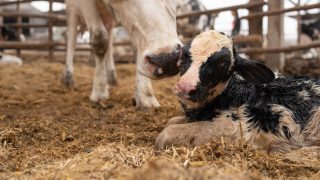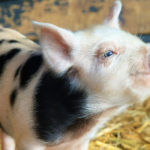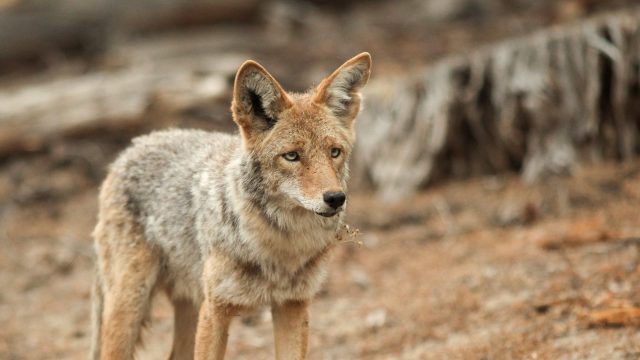
USDA Restricting Access to Plant-Based Milks in National School Lunch Program is Dietary Racism
Proposed rule would maintain an unnecessarily complicated and confusing process for children to get access to plant-based milk
Contact: media@aldf.org
WASHINGTON D.C. — Today the Animal Legal Defense Fund submitted comments to the U.S. Department of Agriculture’s (USDA) Food and Nutrition Service (FNS) urging the agency to strengthen child nutrition programs, including the National School Lunch Program (NSLP), by removing barriers to plant milks in child nutrition programs and to consider the environmental and environmental justice impacts of the proposed rule under the National Environmental Policy Act (NEPA).
Maintaining unnecessary barriers to plant milks in child nutrition programs is one example of dietary racism in government nutrition assistance programs. In March 2023, members of Congress acknowledged the issue and noted, USDA action is “especially important because large numbers of minority children particularly Black, Latino, Native American, and Asian-American, are lactose intolerant” and “experience a number of adverse health effects simply because, in practice, [cows’ milk] is the only type of milk offered in schools.”
“Many students are having to choose between severe stomach discomfort with cows’ milk and missing part of their lunch — both of which can impact their ability to thrive at school,” says Animal Legal Defense Fund Managing Attorney Amanda Howell. “Children should have equal access to plant-based milk as part of their school lunches without having to jump through extra hoops — anything less runs contrary to law.”
The comments argue under NEPA, FNS is required to do an Environmental Impact Statement (EIS) to project the impact of this major government action. The federal government has long favored animal products like cows’ milk, which contributes to the continued entrenchment, expansion, and consolidation of industrial animal agriculture, especially factory farms. Thus, the proposed rule fuels the severe environmental degradation, environmental injustice, and climate injustice endemic created by industrial animal agriculture. The comments argue under NEPA, FNS is required to do an EIS to project the impact of this major government action. For the NSLP alone, nearly 20 million students being served cows’ milk every weekday, servings quickly add up into the billions.
Contrarily, removing barriers to plant-based milk would help further environmental justice efforts, mitigate climate change and environmental degradation, and empower young people — especially young people of color — to choose the milk product that is most appropriate for their health, wellbeing, culture, religion, and/or philosophical convictions.
“Young people — children of color in particular — are being limited to cows milk for their milk option as part of a program that prioritizes the entrenchment of industrial animal agriculture over the health of students who have a diverse range of needs, and the wellbeing of animals and the environment,” says Howell.
USDA and FNS have statutory authority to treat soy milk the same as cows’ milk in child nutrition programs. Contrary to the statement in the proposed rule, the National School Lunch Act does not define “fluid milk” as cows’ milk. As the proposed rule recognizes, the law only “requires schools to offer students a variety of fluid milk at lunch,” and “such milk must be consistent with the [Dietary Guidelines for Americans, 2020–2025].” The Dietary Guidelines for Americans treat soy milk “as part of the dairy group because [it is] similar to milk and yogurt based on nutrient composition and in their use in meals.”
The USDA issued, for comment, its draft standards on February 7, 2023.
Sign Up!
Join the Animal Legal Defense Fund's email list to stay up to date on lawsuits, legislation, and regulations affecting animals.
Focus Area
How We Work
Related
-
Complaint Urges USDA to Investigate Puppy Mill Carrier for Deaths During Transport
Records obtained by the Animal Legal Defense Fund reveal puppy deaths and injuries in transport.June 11, 2024 Press Release -
Legal Petition Urges USDA to Adopt Comprehensive Regulatory Framework for Wildlife Services Program
The Animal Legal Defense Fund, as part of a coalition, submitted a petition for rulemaking to the USDA Animal and Plant Health Inspection Service urging Wildlife Services to phase out lethal control of wild animals, including prohibiting specific practices such as neck snares, M-44 cyanide bombs, lead bullets, and more.November 21, 2023 Press Release -
Animal Legal Defense Fund Urges USDA to Strengthen Regulations for Handling and Exhibiting Wild and Exotic Animals
Recommendations aim to decrease risk of zoonotic disease spread, animal escapes and attacks, and psychological and physical harm to the animalsApril 11, 2023 Press Release




